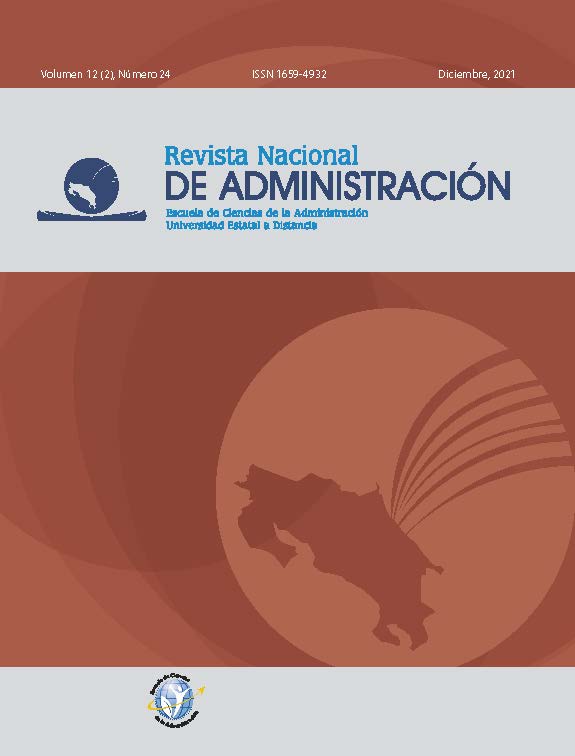The Inclusion of Women and Young People in Brazilian Solidary Cooperatives: a Proposal for an Inde
DOI:
https://doi.org/10.22458/rna.v12i2.3843Keywords:
Solidarity cooperatives, family farming, rural youth, gender equality, social inclusion, BrazilAbstract
This article presents the elaboration and the results of the “Inclusive Development Index for Solidary Cooperatives” (IDICS in Portuguese). The Index measures the inclusion of young people and women in 30 cooperatives of family farming in Minas Gerais, Brazil. Its elaboration took place through a participatory process with the cooperatives’ members and managers. IDICS consists of 2 sub-indexes of 18 variables each: The Women's Inclusion Index (IIM) and the Youth Inclusion Index (IIJ). The collection of data was done through structured questionnaires, applied remotely to the cooperatives. The results suggest a strong heterogeneity among the cooperatives, and the results are related to the size, time of operation of the cooperative and the region of location. Most cooperatives lack progress with regard to their inclusion processes. Therefore, the Index can be a useful tool for planning and identifying good practices.
References
campesinos: Asoproorgánicos (Cali, Colombia). Revista Colombiana de Sociología, 41(2), 83-101.
Valadares, A. A., Ferreira, B., Martins, L. & Galiza, M. (2017). A juventude rural no III Festival da Juventude da Contag:
relatório de pesquisa. IPEA.
Woortmann, E. F. & Woortmann, K. (1997). O Trabalho da Terra: a lógica e a simbólica da lavoura camponesa. Editora
Universidade de Brasília.
Published
How to Cite
Issue
Section
License
Copyright (c) 2021 The National Administration Review

This work is licensed under a Creative Commons Attribution-NonCommercial-ShareAlike 4.0 International License.
Aquellos autores/as que tengan publicaciones con esta revista, aceptan los términos siguientes:
- Los autores/as conservarán sus derechos de autor y garantizarán a la revista el derecho de primera publicación de su obra, el cuál estará simultáneamente sujeto a la Licencia de reconocimiento de Creative Commons que permite a terceros compartir la obra siempre que se indique su autor y su primera publicación esta revista.
- Los autores/as podrán adoptar otros acuerdos de licencia no exclusiva de distribución de la versión de la obra publicada (p. ej.: depositarla en un archivo telemático institucional o publicarla en un volumen monográfico) siempre que se indique la publicación inicial en esta revista.
- Se permite y recomienda a los autores/as difundir su obra publicada en la revista a través de Internet (p. ej.: en archivos telemáticos institucionales o en su página web).

